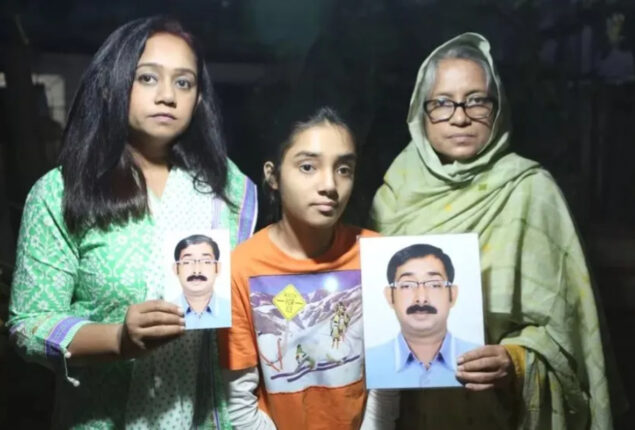Bangladesh: Journalist held in underground cell for over a month
I was zoo-treated, the journalist says. He was tortured for 53 days...

Bangladesh accuses of violent crackdown on free speech
“I was treated like an animal in a zoo. I was permanently blindfolded – the only time they removed my handcuffs from behind my back was to eat.”
Shafiqul Islam Kajol, a journalist from Bangladesh who goes by the name Kajol, claims that he was tortured for 53 days while being imprisoned in a subterranean cell.
“Sometimes they would beat me before they took me for an interrogation. I can’t put into words how painful it was.
“They’d asked me about the stories I had written. I had to face a lot of torture. I still struggle to speak about it.”
“There are no human rights in this country,” the 54-year-old says, speaking to us from a secret location. “I live in continuous fear.”
In the same week that Kajol choose to speak with us, security forces engaged in combat with BNP protesters in the nation’s capital of Dhaka, and the nation’s Human Rights Day was observed with a large antigovernmental gathering.
People were urged to protest in the streets by the BNP against the Awami League-led administration of Prime Minister Sheikh Hasina. Calls for free and fair elections, concerns about the rising cost of living, and information about human rights violations are among their top priorities.
Police detained opposition leaders in the lead-up, which opponents claim was an effort to stifle all dissent.
The government of Bangladesh disputes that it is repressing free speech.
Abdul Momen, the country’s foreign minister, refuted claims that his administration was limiting free expression in an interview with the Media. He emphasized that his country, which was established in 1971 following a war with Pakistan, was established “to protect democracy, human rights, and justice.”
The United Nations was one among the organizations that raised concerns after Kajol vanished in March 2020. “The targeting of investigative journalists like Shafiqul Islam Kajol raises significant issues about Bangladesh’s commitment to a free and independent media,” it was stated in a statement.
Kajol had written an essay describing claims of a sex trafficking conspiracy involving politicians the day before he vanished. His attorney claimed that soon after, a member of the government’s Awami League party brought a lawsuit against him and others due to the news.
The following day, as he left his office on his motorcycle after picking up his kid from school, he claims that a gang of eight to ten men on bikes were following him. Kajol claims he was thrown into a minivan and driven to the prisoner’s cell below ground.
Catch all the World News, Breaking News Event and Latest News Updates on The BOL News
Download The BOL News App to get the Daily News Update & Follow us on Google News.